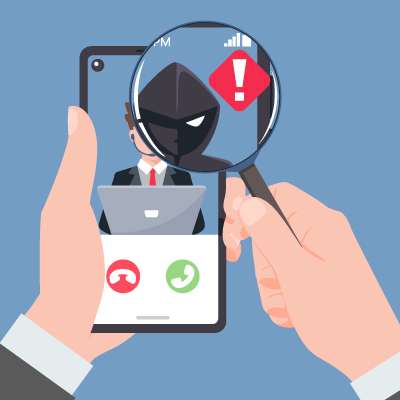Macro Systems Blog
Signs that You are Being Scammed
Being scammed in any capacity is a scary thought. To avoid this outcome, we must be vigilant all the time now.
Naturally, it also helps to know what to look for.
Listed below are a few warning signs and red flags that something is likely a scam.
What are the Signs of a Scam in Progress?
There are many signals that a message is a scam that, by keeping them in mind, will make it easier to spot them and address them appropriately.
The Sender Claims to Be Someone Trustworthy
We’re surrounded by people and entities that we are encouraged to inherently trust, whether that’s the government and its many offices, a business, or financial institutions. Then there are those that we tend to trust—family members, coworkers, friends—based on our existing relationships with them. Scammers know that this trust exists and are only too happy to take advantage of it by posing as these parties as the foundation of their schemes.
It Pushes Exclusive, Low-Effort Money-Making Opportunities
Deep down, we all wish we had a little (or, more realistically, a lot) more money to our name. This is another point that scammers love to capitalize on, as they will frequently draw upon these desires to bypass the rational decision-making process most people have. After all, who wouldn’t want a little (or a lot) extra money? It is exactly this mindset that makes these scams so tempting, so if an offer seems too good to be true, it is safe to assume it is.
Someone is Pleading for Help
You’re probably familiar—at least conceptually—with the Nigerian Prince scam (also known as the advance-fee scam): a scammer reaches out to the target, posing as someone who needs assistance and promises great rewards in exchange for some financial help now. Naturally, these rewards never come. Random requests for help, especially those from strangers, are effectively never legitimate and should be seen as a scam attempt.
There are Links and Attachments (Especially Unexpected Ones)
Similarly, links and attachments are another red flag if they appear in an email, particularly if they weren’t expected or don’t have a clear reason to be there. If this is the case, there’s a good chance that the reason is to allow a scammer to spread malware or send the recipient to a malicious website. Avoid clicking on any attachments or links that come in via email unless you can confirm their legitimacy through an alternative method of communication.
The Message is Urgently Pressuring You to Act
If an email attempts to scare you into acting rashly, it pays to stop and consider why it might be designed to do so. Chances are that it is precisely so you don’t stop and think about it. Scammers understand that pressure causes panic, and panic overwhelms reason. Therefore, getting you to an elevated state helps their cause by preventing you from looking at it rationally, making you more vulnerable to the scam. Do your best to stay calm and look at it from a level playing field.
Odd Payments are Being Requested, and in Very Specific Formats
A request for payment coming through email may not be unheard of, but it is important to recognize that not all payment requests should be considered in the same way. An expected payment request, directing you to an official payment portal (or even a notification that a payment has been processed) is far more trustworthy than a message asking you to Venmo a payment to a “business account.” Requests for cryptocurrency are especially concerning, as they are effectively untraceable.
Remember, scams typically don’t discriminate by business size. Any organization could potentially be targeted… including yours.
This means that the businesses of Metro Washinging, DC area need a resource to help them maintain their security, from practical protections to employee awareness training. Macro Systems can be that resource for you. Give us a call at 703-359-9211 to learn more.





Comments